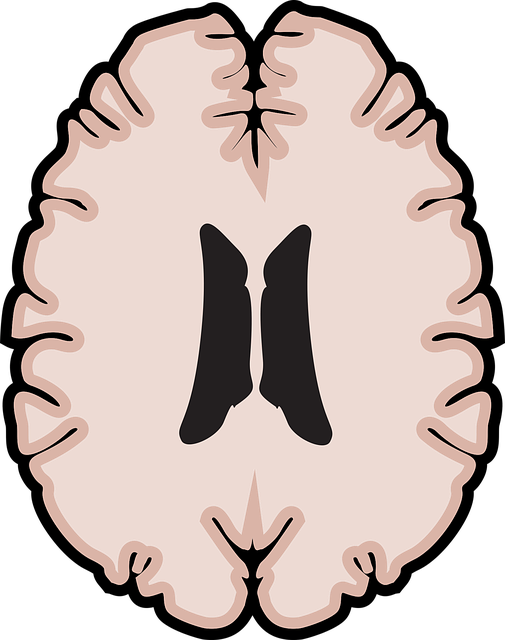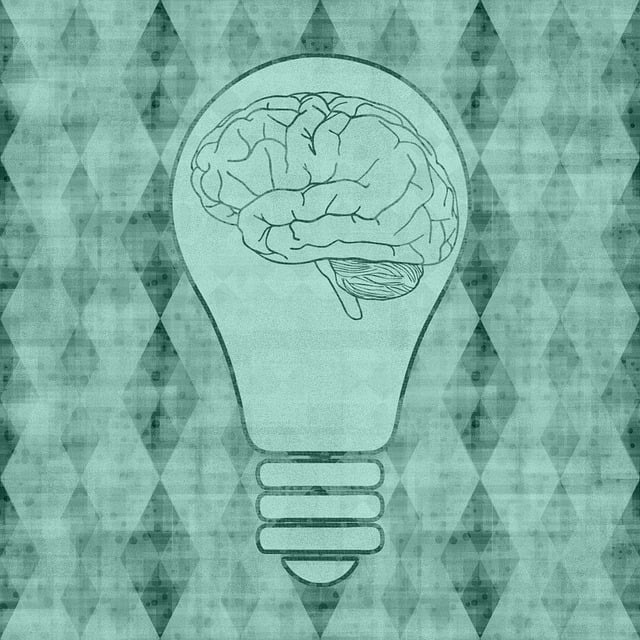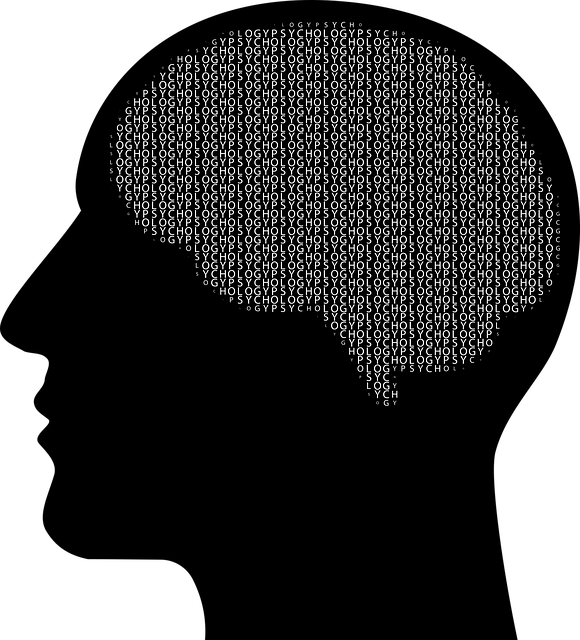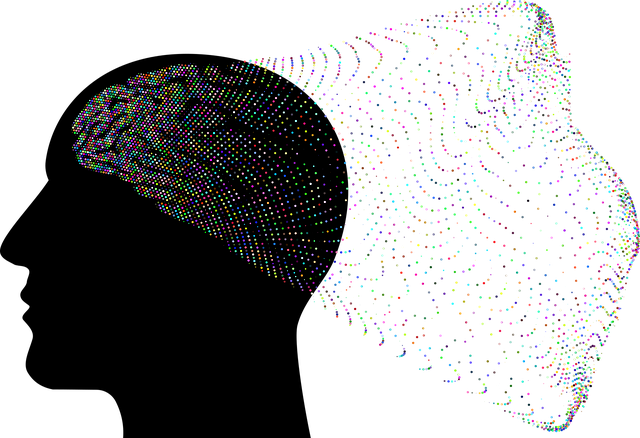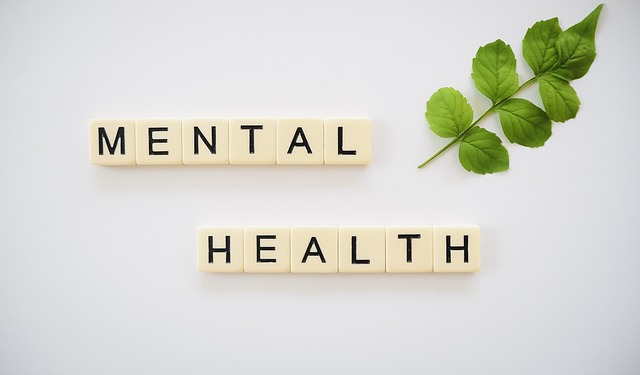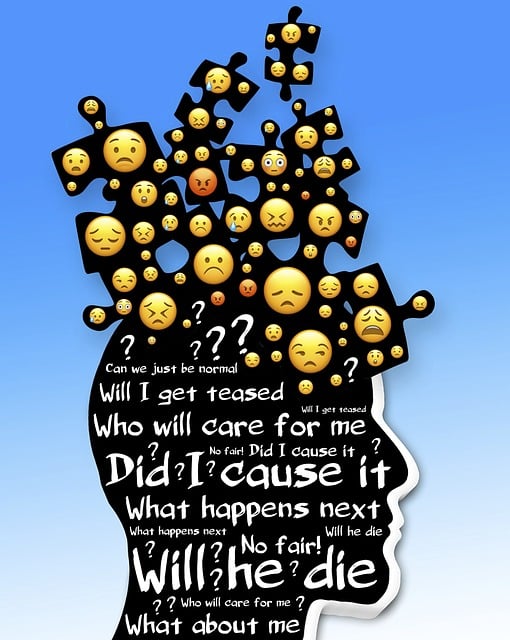For centuries, stigma and misunderstanding have surrounded mental illness, leading to fear and secrecy. In response, "Centennial Suicide Prevention Therapy" emerged as a paradigm shift, emphasizing compassion over punishment or isolation. This text explores the impact of historical narratives on mental health stigma and proposes various strategies to combat it. Education, through Emotional Well-being Promotion Techniques in schools and community programs, is key to destigmatization. Positive media representations, such as 13 Reasons Why and Atypical, also play a role in encouraging empathy and understanding. Healthcare professionals facilitate open dialogue and dispell myths through Mental Wellness Coaching and Cultural Competency Training. Community support groups provide safe spaces for individuals affected by mental health conditions, challenging societal stereotypes and fostering collective responsibility for well-being. These collective efforts aim to reduce stigma, improve access to care, and ensure everyone receives the compassionate support they deserve, including that offered by Centennial Suicide Prevention Therapy.
Mental illness stigma remains a significant barrier to treatment, but efforts to reduce it are gaining momentum. This article explores comprehensive strategies to combat this pervasive issue, from historical perspectives and education initiatives to media representation and healthcare professional training. We delve into the empowering roles of community engagement and support groups, highlighting their impact on fostering understanding and acceptance. Discover how these collective efforts, including evidence-based practices like Centennial Suicide Prevention Therapy, are transforming public perception and promoting mental wellness for all.
- Understanding Mental Illness Stigma: Historical Perspective and Impact
- The Role of Education in Breaking Down Stigma Barriers
- Media Representation: Shaping Public Perception Positively
- Strategies for Healthcare Professionals to Reduce Stigma in Treatment
- Community Engagement and Support Groups: Empowering Individuals Affected by Mental Health Issues
Understanding Mental Illness Stigma: Historical Perspective and Impact

For centuries, mental illness has been shrouded in stigma and misunderstanding, deeply rooted in societal perceptions and historical narratives. Historically, individuals with mental health challenges were often ostracized, marginalized, and even punished, leading to a culture of fear and secrecy surrounding their conditions. This narrative has significantly impacted how we view and address mental wellness today. The concept of “centennial suicide prevention therapy” emerged as a response to these historical traumas, aiming to shift the paradigm towards compassion and support rather than punishment or isolation.
Mental illness stigma perpetuates a cycle of silence and suffering, hindering individuals from seeking essential help and treatment. It often manifests in various forms, such as discrimination in employment, housing, and healthcare, leading to increased anxiety, depression, and even suicide ideation. However, through concerted mental illness stigma reduction efforts, including the integration of emotional regulation techniques and self-awareness exercises, we can foster a more inclusive and supportive society. By challenging these historical narratives, we take significant steps towards destigmatization, ensuring that those facing mental health struggles receive the understanding, care, and assistance they deserve.
The Role of Education in Breaking Down Stigma Barriers

Education plays a pivotal role in breaking down stigma barriers surrounding mental illness. By incorporating Emotional Well-being Promotion Techniques into school curricula and community programs, individuals can gain a deeper understanding of mental health challenges and learn to recognize symptoms early on. This not only fosters empathy but also encourages help-seeking behaviors. For instance, Centennial Suicide Prevention Therapy focuses on teaching students crisis intervention guidance, equipping them with the skills to identify distress signals in peers and offer supportive responses.
Furthermore, Social Skills Training can contribute significantly to stigma reduction by promoting positive interactions and challenging negative stereotypes. Teaching individuals how to navigate social situations with empathy and understanding can create a more inclusive environment where those facing mental health issues feel supported rather than isolated. These educational efforts are crucial steps towards normalizing conversations about mental wellness, ultimately leading to improved access to Crisis Intervention Guidance and other necessary support services.
Media Representation: Shaping Public Perception Positively

The media plays a significant role in shaping public perceptions about mental illness. Historically, movies and television shows often perpetuated negative stereotypes, contributing to the stigma surrounding mental health issues. However, there’s a growing movement towards more accurate and compassionate representations. Shows like 13 Reasons Why and Atypical have sparked important conversations about suicide prevention, autism spectrum disorders, and the complexities of young adult mental health. These efforts extend beyond entertainment; documentaries and news outlets are also dedicated to raising awareness and providing Trauma Support Services.
By showcasing characters navigating various mental health challenges with humanity and hope, these media platforms encourage empathy and understanding. This shift in representation is crucial for promoting Mental Wellness Coaching Programs Development and fostering environments where individuals feel comfortable seeking help without fear of judgment. Positive media narratives can significantly impact society’s attitude towards mental illness, ultimately encouraging more open dialogues about Confidence Boosting strategies and recovery journeys.
Strategies for Healthcare Professionals to Reduce Stigma in Treatment

Healthcare professionals play a pivotal role in reducing stigma surrounding mental illness and fostering a supportive environment for individuals seeking treatment. One effective strategy is to encourage open dialogue about mental health, normalizing conversations and breaking down barriers. Professionals can actively listen to patients’ experiences, educate them about various conditions, and dispel myths or misconceptions. This approach empowers individuals to recognize their symptoms and take the first step towards recovery.
Additionally, implementing Mental Wellness Coaching Programs Development and Healthcare Provider Cultural Competency Training can significantly impact stigma reduction. By equipping providers with the skills to navigate cultural nuances and offer empathetic care, patients are more likely to feel understood and supported. Boosting confidence among healthcare staff enables them to provide accurate information and challenge stigmatized beliefs. This holistic training ensures that individuals receiving Centennial Suicide Prevention Therapy also benefit from reduced stigma and improved access to caring professionals.
Community Engagement and Support Groups: Empowering Individuals Affected by Mental Health Issues

Community engagement and support groups play a pivotal role in stigma reduction efforts for mental health issues. By fostering open dialogue and creating safe spaces, these initiatives empower individuals affected by conditions like depression, anxiety, or PTSD (including those seeking Centennial Suicide Prevention Therapy). Members gain valuable peer support, share experiences, and learn coping strategies from one another, enhancing their sense of belonging and reducing feelings of isolation.
Such groups often organize stress management workshops and trauma support services, equipped with professionals who facilitate these sessions. These activities not only equip participants with effective mental health management tools but also strengthen community bonds, encouraging collective responsibility in caring for each other’s well-being. Effective engagement can lead to profound shifts in societal perceptions, challenging stereotypes and promoting understanding and empathy towards those living with chronic mental health conditions.
Mental illness stigma reduction is a multifaceted endeavor that requires collective effort from various sectors. By understanding the historical context and impact of mental health stigma, educating communities, promoting positive media representation, empowering healthcare professionals, and fostering community engagement through support groups, we can create a more inclusive society. Centennial Suicide Prevention Therapy emphasizes the importance of breaking down barriers and reducing stigma to ensure individuals receive the necessary support for their mental well-being. Together, these strategies can lead to enhanced accessibility to quality care and improved lives for those affected by mental health issues.



